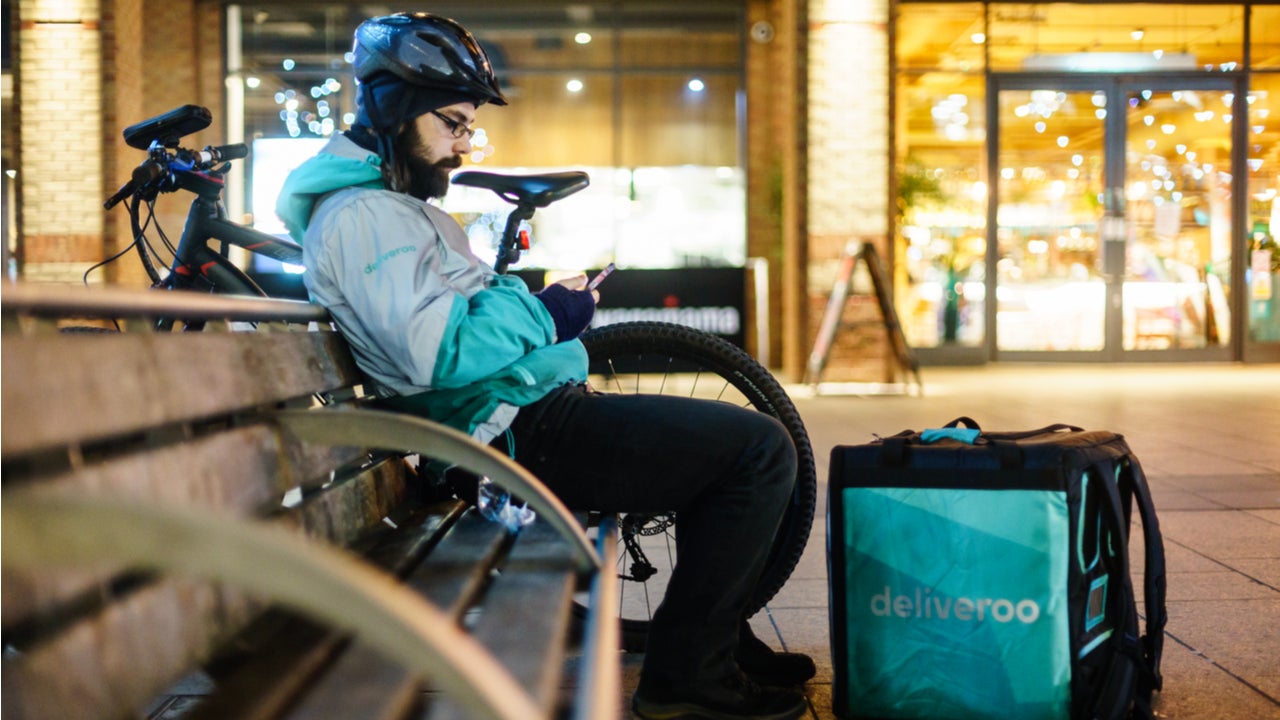
Food delivery company Deliveroo has won its latest legal battle over the employment status of its riders, with the UK Court of Appeal confirming that they are self-employed.
The ruling sheds light on the legal criteria for gig economy companies classing people as independent contractors who are self-employed – an employment model widely embraced by technology platforms offering a service such as ride-hailing or food delivery.
Those classed as self-employed are not entitled to minimum wage while those classed as workers have better holiday, health and pay rights, along with the right to unionise.
In 2017 the Independent Workers Union of Great Britain (IWGB) launched a legal challenge on behalf of a group of Deliveroo riders to classify as workers and gain the right to form a union. This would allow them to bargain collectively for better employment conditions.
On three prior occasions the British courts have sided with Deliveroo’s stance that its riders should be classed as self-employed.
In a statement, a Deliveroo spokesperson said: “Deliveroo’s model offers the genuine flexibility that is only compatible with self-employment, providing riders with the work they tell us they value.”
How well do you really know your competitors?
Access the most comprehensive Company Profiles on the market, powered by GlobalData. Save hours of research. Gain competitive edge.

Thank you!
Your download email will arrive shortly
Not ready to buy yet? Download a free sample
We are confident about the unique quality of our Company Profiles. However, we want you to make the most beneficial decision for your business, so we offer a free sample that you can download by submitting the below form
By GlobalDataIt comes as gig economy companies that use low-paid workers on zero-hour contracts have faced increasing legal challenges to their employment models.
Earlier this year the UK’s highest court ruled that drivers for ride-hailing app Uber were classed as workers instead of self-employed.
The contrasting outcomes in the Deliveroo and Uber rulings offer a case study for companies relying on gig economy staff and a potential blueprint for businesses reliant on self-employed staff.
A key condition classifying Deliveroo riders as self-employed is their ability to use a substitute to carry out a shift, said Lord Justice Underhill, one of the three judges who heard the appeal.
Deliveroo’s lack of fixed hours or requirement for its riders to login to the app and work also meant they were deemed to have enough control to be classed as self-employed. Riders providing their own bikes or vehicles also worked against them in the eyes of the judges.
The ruling means that while Deliveroo riders have the right to organise, they do not the right to do so under the framework of a trade union.
By contrast the Supreme Court found in February that Uber drivers should be classified as workers and are entitled to minimum wage and paid holiday.
In that case the court found the conditions Uber sets for its drivers, such as penalties for rejecting pickups, meant they were in a “position of subordination and dependency to Uber”.
In May Uber formally recognised a union for the first time, allowing GMB to represent Uber’s 70,000 UK drivers in employment discussions about pay, pension, benefits, health safety and wellbeing.
Thursday’s unanimous 3-0 verdict appears to have drawn a line under the IWGB’s legal challenge, with the three judges refusing it the right to appeal to the Supreme Court.
Some riders make as little as £2 an hour working for Deliveroo, a recent investigation by the Bureau of Investigative Journalism found. Deliveroo argues that its employment model provides riders with “flexibility”.
Deliveroo’s use of gig economy riders and the risk of associated legal challenges was cited as a key factor in its lacklustre public listing on the London Stock Exchange in March.
Deliveroo shares received a 9% boost upon the news of its legal victory, the highest level since April.
Founded in 2013 by Will Shu and Greg Orlowski, Deliveroo floated with a valuation of £7.6n but shares fell by 40% on the first day.
While the company saw orders placed via its app soar during pandemic lockdown restrictions, it remains loss-making and loses money on every delivery it makes.





